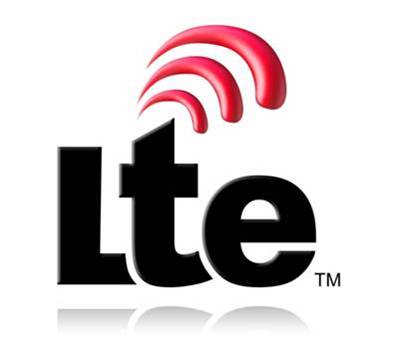
Dell denies Chinese smartphone makes its official debut
For some time now, Chinese engineers have been working on an offshoot of the Android smartphone OS that uses a proprietary front-end, with the intention of creating a network for functions and applications that will rival that of Apple's iPhone. It's being called the Open Mobile System (OMS), and the app platform is now being referred to as Ophone.
This morning overseas, China Mobile showed off its newly completed Mobile Market applications store, the country's first competitive online market for Ophone apps. Since there is no single Ophone unit for China, multiple manufacturers may be involved in producing the phones themselves; and as attendees of this morning's event learned to their surprise, Dell -- the company that has long been hesitant to enter this market -- was one of them.

HTC confirms 'Sense' Android UI upgrade for China
HTC's 'Sense' UI is a large part of what makes the HTC Hero such a desirable handset for Android fans. The interface, centered mostly around home screen widgets, was debuted earlier in the summer and was expected to arrive on other "non-Google" HTC Android handsets.
Since there are only three HTC Android handsets, and all of them are Google-branded in the US so far, this meant at the time that the UI was not coming to the States.

A browser war veteran turns wannabe
Marc Andreessen is a brilliant guy. His Mosaic browser, which eventually morphed into Netscape, introduced us all to the concept of surfing and ushered in the Internet as we know it. His new way of looking at online services -- which seems ho-hum today but was radically transformational 15 years ago -- freed us forever from the tyranny of arcane, unfortunately named services like Archie, Veronica, Jughead, and Gopher. In taking Netscape public, he set the stage for dot.com-era IPOs that created countless tech billionaires-as-rock-stars and defined an era when technology's potential was seemingly limitless. Let's call him brilliant and visionary, then.
However, even geniuses have their bad days...sometimes, they have many. Netscape was eventually wiped off the relevance map when Microsoft finally woke up to the Internet reality and paved over the landscape with Internet Explorer. The Internet bubble burst as the perverse logic that drove much of it -- eyeballs, "stickiness," and the ridiculous notion that bricks-and-mortar were headed for permanent and complete obsolescence -- was finally and thankfully replaced by the old rules of business that dictated you needed to generate revenue, and that revenue needed to exceed your costs.

Sony takes more control of Sony Ericsson, appoints Stringer to chair
It's difficult to say which company has suffered most from the bad global economic climate -- Nokia, Motorola, or Sony Ericsson -- but if you ask any of their executives candidly, they'll probably point to their own firms. Last quarter, Sony Ericsson reported shipping 43% fewer phones than in the same quarter of 2008; and in terms of income, the company is bleeding at the rate of a third of a billion euro per quarter.
At the time, company president Dick Komiyama promised he would continue focusing on a return to profitability. This morning, it was learned that Sony has told the division president he can start thinking about focusing someplace else -- preferably, retirement. Effective immediately, Ericsson Executive Vice President Bert Norberg will scoot Komiyama to just a part of the president's chair, until the last quarter of the year when Komiyama will be out altogether. Though Komiyama will officially be sharing the presidency with Norberg until then, no one's under any illusion that this sharing will be anything more than official.

Back up the Pirate Bay!
With the future of the Pirate Bay still up in the air, an anonymous user has created an archive of the torrent indexing site just in case things don't go well with its acquisition and transition into a "legitimate" service.
The user has made a mostly complete archive of The Pirate bay and all of its 873,671 hosted torrents available as a 21.3 GB download. The Pirate Bay's tracker claims to track over 2 million torrents, but most of these were not hosted by the Pirate Bay.

Psystar wants to get your Apple questions answered
You know why there are so many Apple rumors? Because they don't talk to the media. So when someone is guaranteed to have an audience with Apple where the company is legally bound to answer the questions, it's a golden opportunity to learn about the tight-lipped company's strange and wondrous ways.
Stouthearted Mac clone maker Psystar announced that it will have its turn to depose Apple in its litigation over the company's unauthorized use of OS X on its PCs.

Bing vs. Google rematch: Who's getting better, quicker?
Two months ago, Microsoft unveiled its revamped Bing search service, touting it as a "decision engine." There were some genuine new advantages which we did discover, but not everything appeared ready for Bing's first outing, and we were told to expect improvements to some features "in the coming weeks." Not months, weeks.
So this is August, and (do forgive me) what hath Bing brung? In our June series of Face-offs, the final score was Google (4), Bing (3) -- not necessarily a runaway, but good enough for the champion to not feel immediately threatened. With Google testing improvements to its search engine, we wondered if we'd find any evidence of tweaking on Bing's side as well. We've decided to put both services through the same paces a second time to see which service is the one that's really gunning for a rematch.

Verizon completes 4G LTE trials in Boston, Seattle
Just as Verizon has predicted since late 2007, the company has completed its first trials of LTE (Third Generation Partnership Project's Long Term Evolution), the as-of-yet non-standardized 4G wireless technology.
Verizon was able to make calls in the 700 MHz spectrum based on the 3GPP's Release 8 LTE standard in trial deployments in Seattle and Boston. The company was able to stream video, upload and download files and browse the Web, but most importantly, it was able to complete voice calls.

Surplus of applicants for federal broadband stimulus money triggers a delay
Everybody is scrambling for his or her broadband stimulus money.
5:00 p.m. EDT today was scheduled to be the deadline for funding applications under the American Recovery and Reinvestment Act, but because of overwhelming traffic on the government's servers, the deadline has been extended to next Thursday, August 20.

Office vs. Web apps: Breaking the 0-0 tie
The story so far: We're in the initial phase of the Microsoft Office 2010 Technical Preview, a period of private and public testing that could last for the better part of a year. So far, the biggest complaint we're seeing emerge is that so little is changing, that it's becoming more difficult for Microsoft to make the value proposition for why businesses and individuals should upgrade from Office 2007 or even 2003. In the absence of viable, existing reasons why the new Office will be better than the old one, a couple of Microsoft employees launched a Web site this week, asking people to come up with their own reasons and vote up each other's best responses.
Right now, the number one suggestion users have for "making Office better" is the restoration of an old feature that existed in Office XP. The #3 suggestion for Word: Give users the option to bring back the Office 2003 menu bar. (You can just hear Carmi Levy cheering that suggestion.) So to recap, from both Microsoft and its users, nothing new yet, but plenty of pleas to bring back old stuff that was just fine.

Qik: Yet another brilliant service crippled on iPhone
Mobile video streaming site Qik, which was introduced last year is leading the charge into the next generation of the Web. Think of it as a real-time YouTube where a user's mobile phone is paired with an online channel that broadcasts live video streamed from his handset camera over 3G. The service's value for citizen journalism is undeniable.
Symbian, Windows Mobile, and Android all have the ability to stream live video to Qik, and the iPhone 3G S just got an app for the service for the first time yesterday.

EU study: Web users think they're being charged enough for online content
One of the stated goals of the European Commission over the past few years has been the fostering of a healthy and vital creative community, a kind of second or third Renaissance brought about by the rapid growth of digital media. But the key fuel for growing the content community as rapidly as the technology community will be the same fuel that tech requires: money. And online content creators aren't getting much of it, a continent-wide EU survey concludes this week, because a sizable plurality, if not a majority, of consumers there believe they're already paying for "free" content -- some too much so.
According to data compiled from member nations by the European Union's statistics and record-keeping agency Eurostat, which sampled survey responses from 211,651 individuals in 148,604 households, only 5% of Europeans reported having paid above and beyond their Internet service charges, for any kind of online content within the last three months of having received the survey. (For individuals 16-24 years of age, the number was closer to 10%.) Among the remainder who had not paid extra, about 49% said they would be unwilling to pay any extra for Internet content, regardless of whatever incentives they may be offered or whatever laws may be passed or enforced.

Looking forward to September with Apple
For the last four years, Apple has reserved the September back-to-school season for upgrading its line of iPod media players. Rumors attributed to "music industry executives" this week indicate that this September will be no different.
A keynote in September gives the company the opportunity to hype up the latest generation of iPods while reminding parents that college kids can get one free if they buy a Mac.

ICANN: 'Domain tasting' practice declined to near-zero in April
Perhaps you've noticed this yourself: Whenever you mis-type a URL with a name that's maybe one letter off from the proper one, you no longer get directed to a site with a zillion ads that masquerades as the real one that you've never seen before, and that you may never see again. While the practice of cybersquatting hasn't necessarily subsided, the Web had been suffering from a plague of domain tasters -- sites that set up shop on sound-alike URLs for five days at a time, or even less, knowing they could revoke their URL registrations within that "add grace period" (AGP) without paying a fee.
In the meantime, these domain testers could reap the rewards of serving up dozens of cheap pop-under ads, and maybe even planting a few bots in the process. It was getting so bad that the number of misappropriated URLs cancelled within ICANN's five-day AGP, for one month in early 2007, approached 50 million. And as few as ten registrants were responsible for the lion's share of those one-off names.

AT&T and Apple hit with class action over iPhone MMS promises
A class action lawsuit has been filed against Apple and AT&T in the Eastern District of Louisiana on the grounds that Apple's "print and video advertisements [for the iPhone 3G S] in and on television, the Internet, the radio, newspapers, and direct mailers all touted the availability of MMS," but the functionality remains unavailable.
The complaint, filed one week ago, says "Millions of customers, including Louisiana residents, purchased the 3G and 3G S waiting for the day in June 2009 when the new application would be available which would allow MMS. Unfortunately, after downloading the new 3.0 software update application, MMS still did not work on both the 3G and 3G S...The only excuse offered by AT&T and Apple is a mouse-print disclaimer on the Web site, in barely readable font, which reads 'MMS Support from AT&T coming in late summer.'



